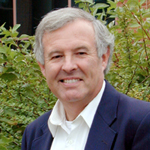Dr. Barry Rock
Director of Science & Research
Dr. Barrett N. Rock, Director of Science and Research, is a professor emeritus at the University of New Hampshire in the Earth Systems Research Center within the Institute for the Study of Earth, Oceans and Space (EOS). Dr. Rock has just completed creating a series of eight high school classroom lesson plans for National Geographic Channel’s “One Strange Rock” a new docuseries hosted by actor Will Smith and narrated by 8 of the NASA’s most notable astronauts. The lesson plans will be accompanied by teacher training workshops and are designed to support key messages presented in the series, including several Google Earth, Google Mars, and Google Venus exercises. Dr. Rock is also developing the curriculum and teacher training workshops for the Amazon Aid Foundation’s new documentary “River of Gold”. The film is narrated by academy award winners Sissy Spacek and Herbie Hancock and details the disturbing account of a clandestine journey into Peru’s Amazon rainforest to uncover the savage unraveling of pristine jungle. Trained as a botanist, Dr. Rock’s research uses Earth-orbiting satellites to monitor the health of forests around the Northern Hemisphere. He has incorporated his research activities into a variety of K-12 science outreach programs locally and internationally.
In 1991, Dr. Rock and Phil Browne co-founded the inquiry-based Forest Watch program across New England. Forest Watch focuses on K-12 student measurements of white pine, a species that is a bio-indicator for exposure to ground-level ozone (smog). In 1994 and 1995, he developed the scientific measurement system of GLOBE (Global Learning and Observations to Benefit the Environment), an international K-12 science outreach program developed at the White House in Washington, DC. Dr. Rock served as GLOBE’s first Chief Scientist and assistant director. GLOBE is an international partnership of students, teachers, and scientists that supports students with hands-on science activities and measurement protocols designed to provide scientists with reliable global-scale data. GLOBE has enriched the education of over 1.5 million students and raised community environmental awareness in over 120 countries around the world. The GLOBE program has included over 10,000 K-12 students contributing data daily to an international team of professional researcher scientists.

